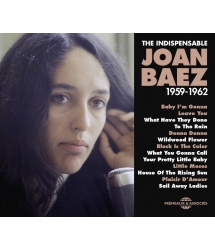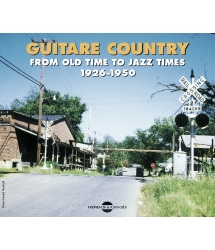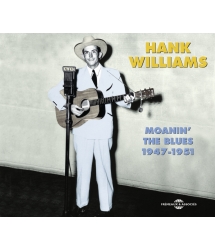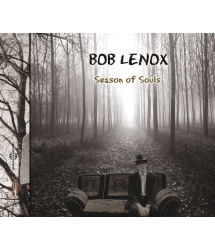- Notre Catalogue
- Philosophie
- Philosophes du XXème siècle et d'aujourd'hui
- Histoire de la philosophie (PUF)
- Contre-Histoire et Brève encyclopédie par Michel Onfray
- L'œuvre philosophique expliquée par Luc Ferry
- La pensée antique
- Les penseurs d'hier vus par les philosophes d'aujourd'hui
- Textes philosophiques historiques interprétés par de grands comédiens
- Histoire
- Livres
- Sciences Humaines
- Paroles historiques
- Livres audio & Littérature
- Notre Catalogue
- Jazz
- Blues - R'n'B - Soul - Gospel
- Rock - Country - Cajun
- Chanson française
- Musiques du monde
- Afrique
- France
- Québec / Canada
- Hawaï
- Antilles
- Caraïbes
- Cuba & Afro-cubain
- Mexique
- Amérique du Sud
- Tango
- Brésil
- Tzigane / Gypsy
- Fado / Portugal
- Flamenco / Espagne
- Yiddish / Israël
- Chine
- Tibet / Népal
- Asie
- Océan indien / Madagascar
- Japon
- Indonésie
- Océanie
- Inde
- Bangladesh
- URSS / Chants communistes
- Musiques du monde / Divers
- Musique classique
- Compositeurs - Musiques de film - B.O.
- Sons de la nature
- Notre Catalogue
- Jeunesse
- Philosophie
- Nouveautés
- Comment commander ?
- Recevoir le catalogue
- Manifeste
- Dictionnaire
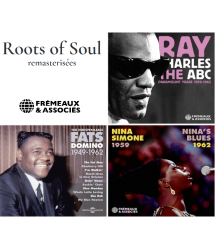

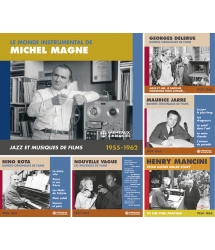








- Notre Catalogue
- Philosophie
- Philosophes du XXème siècle et d'aujourd'hui
- Histoire de la philosophie (PUF)
- Contre-Histoire et Brève encyclopédie par Michel Onfray
- L'œuvre philosophique expliquée par Luc Ferry
- La pensée antique
- Les penseurs d'hier vus par les philosophes d'aujourd'hui
- Textes philosophiques historiques interprétés par de grands comédiens
- Histoire
- Livres
- Sciences Humaines
- Paroles historiques
- Livres audio & Littérature
- Notre Catalogue
- Jazz
- Blues - R'n'B - Soul - Gospel
- Rock - Country - Cajun
- Chanson française
- Musiques du monde
- Afrique
- France
- Québec / Canada
- Hawaï
- Antilles
- Caraïbes
- Cuba & Afro-cubain
- Mexique
- Amérique du Sud
- Tango
- Brésil
- Tzigane / Gypsy
- Fado / Portugal
- Flamenco / Espagne
- Yiddish / Israël
- Chine
- Tibet / Népal
- Asie
- Océan indien / Madagascar
- Japon
- Indonésie
- Océanie
- Inde
- Bangladesh
- URSS / Chants communistes
- Musiques du monde / Divers
- Musique classique
- Compositeurs - Musiques de film - B.O.
- Sons de la nature
- Notre Catalogue
- Jeunesse
- Philosophie
- Nouveautés
- Comment commander ?
- Recevoir le catalogue
- Manifeste
- Dictionnaire
NASHVILLE - DALLAS - HOLLYWOOD 1927-1942
Ref.: FA015
Direction Artistique : GERARD HERZHAFT
Label : Frémeaux & Associés
Durée totale de l'œuvre : 1 heures 45 minutes
Nbre. CD : 2

NASHVILLE - DALLAS - HOLLYWOOD 1927-1942
- - CHOC DU MONDE DE LA MUSIQUE
- - SÉLECTION COUNTRY QUE SAIS-JE ?
- - ƒƒƒ TÉLÉRAMA
- - * * * ECOUTER VOIR
- - GUIDE COUNTRY MUSIC
Gérard Herzhaft nous offre ici la première anthologie couvrant de façon panoramique la country music d’avant guerre. Moins connue que le blues, la Country reste cependant un genre populaire majeur de la culture américaine.
Le coffret de référence sur la génése de la Country Music depuis plus de 15 ans.
Patrick Frémeaux
Droits éditorialisation : Frémeaux & Associés La Librairie Sonore - Notre Mémoire Collective.
Voici, à mon avis, la meilleure formule pour brosser un panorama cohérent des principaux courants des musiques populaires (américaines et autres); un nombre suffisant d'exemples (36 faces ici) et un copieux livret bien illustré. (...) Bravo à Gérard Herzhaft pour ses choix et à la compagnie Frémeaux pour cette constance dans sa politique d'édition en musique country, en jazz, en blues, en gospel et dans le reste....
Robert Sacré - Soulbag
(...) Vous aurez reconnu à la griffe de Frémeaux & Associés, le choix anthologique d'une époque musicale riche, la générosité du livret et la qualité exceptionnelle des repiquages.
Annette Alix - Ecouter voir
(...) As is usual with this label good sound is backed up by copious notes in French and English. Another winner.
Keith Briggs - Blues & Rythm
Grand défenseur du blues devant l'Eternel, Gérard Herzhaft s' est mis en tête de réhabiliter la country music aux yeux des bluesfans. Il a signé chez Frémeaux & Associés plusieurs anthologies consacrées aux différentes facettes du genre : Hillbilly Blues, Western Swing, Hawaiian music, Country Gospel, Country Boogie, Honky Tonk...
Etienne Guillermond - Travel in blues
Ces doubles CD sont des monumets que tout amateur de musique traditionnelle devrait posséder. Merci encore à Gérard Herzhaft et Patrick Frémeaux pour la publication de ces trésors.
Claude Vue - Trad Mag
Bravo aux producteurs français, Frémeaux & Associés, pour ce travail en profondeur sur les roots de la musique américaine, alors même qu'aux USA les anthologies sur la première moitiée du XXe siècle sont inexistantes !
Jacques Brémond - Rock sound.
Enième compilation exemplaire à porter au crédit du musicologue Gérard Herzhaft...
Serge Loupien - Libération
Les ouvrages sonores de Frémeaux & Associés sont produits par les meilleurs spécialistes, bénéficient d’une restauration analogique et numérique reconnue dans le monde entier, font l’objet d’un livret explicatif en langue française et d’un certificat de garantie. La marque Frémeaux & Associés a obtenu plus de 800 distinctions pour son travail muséographique de sauvegarde et de diffusion du patrimoine sonore.
This album, issued by the world-famous publishers, Frémeaux & Associés, has been restored using the latest technological methods. An explanatory booklet of liner notes in English and a guarantee are included.RAILROAD BLUES (SAM MC GEE) • OMIE WISE (G.B. GRAYSON) • PEG AND AWL (CAROLINA TAR HELLS) • A LAZY FARMER BOY (BUSTER CARTER & PRESTON YOUNG) • THE BUTCHER'S BOY (BUELL KAZEE) • MY NAME IS JOHN JO HANNAH (KELLY HARREL) • THE HOUSE CARPENTER (CLARENCE ASHLEY) • GONNA DIE WITH MY HAMMER IN MY HAND (WILLIAMSON BROTHERS) • COUNTRY BLUES (DOCK BOGGS) • BROWNSKIN BLUES (DICK JUSTICE) • SLOW WICKED BLUE (JIMMIE TARLTON) • PAN AMERICAN MAN (CLIFF CARLISLE) • JOHN HARDY (CARTER FAMILY) • WILDWOOD FLOWER (CARTER FAMILY) • BLUE YODEL N° 8 (JIMMIE RODGERS) • ALL THE GOOD TIMES ARE PASSED AND GONE (MONROE BROTHERS) • SINNER, YOU BETTER GET READY (MONROE BROTHERS) • BROWN'S FERRY BLUES (DELMORE BROTHERS) • JIMMIE'S TEXAS BLUES (JIMMIE RODGERS) • ROCKIN'BLUES (JIMMIE DAVIS) • THE DAYS OF' 49 (JULES VERNES ALLEN) • THE DYING COWBOY (JULES VERNES ALLEN) • RYE WHISKEY, RYE WHISKEY (TEX RITTER) • I'LL GO RIDIN'DOWN THAT OLD TEXAS TRAIL (GENE AUTRY) • SONG OF THE BANDIT (SON OF THE PIONEERS) • COWBOY NIGHT HERD SONG (ROY ROGERS) • I WANT TO BE A COWBOY'S SWEETHEART (PASTY MONTANA) • WHAT'S THE MATTER WITH THE MILL ! (BOB WILLS AND HIS TEXAS PLAYBOYS) • LIZA, PULL DOWN THE SHADES (BOB WILLS AND HIS TEXAS PLAYBOYS) • HESITATION BLUES (MILTON BROWN AND HIS BROWNIES) • ALAMO RAG (ADOLF HOFNER AND HIS SAN ANTONIANS) • WOMEN, WOMEN, WOMEN (SHELLY LEE ALLEY & HIS ALLEY CATS) • FOX AND HOUNDS (JIMMIE REVARD AND HIS OKLAHOMA PLAYBOYS) • WRECK ON THE HIGHWAY (ROY ACUFF AND THE SMOKEY MOUNTAIN BOYS) • FIREBALL MAIL (ROY ACUFF AND THE SMOKEY MOUNTAIN BOYS) • I AIN'T HONKY TONKIN'ANYMORE (ERNEST TUBB AND THE TROUBADOURS).
Œuvres sélectionnés

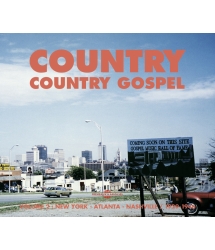
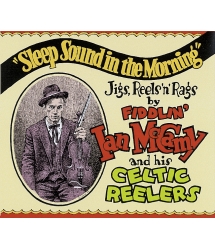
-
PisteTitreArtiste principalAuteurDuréeEnregistré en
-
1RAILROAD BLUESSAM MC GEESAM MC GEE00:03:161928
-
2OMIE WISEGRAYSONTRADITIONEL00:03:121927
-
3PEG AND AWLTAR HELLSWALSH00:03:011929
-
4A LAZY FARMER BOYCARTERTRADITIONEL00:03:021930
-
5THE BUTCHER S BOYKAZEETRADITIONEL00:03:051928
-
6MY NAME IS JOHN JO HANNAHHARELLHARELL00:03:161927
-
7THE HOUSE CARPENTERCLARENCE ASHLEYTRADITIONEL00:03:171930
-
8GONNA DIE WITH MY HAMMER IN MY HANDWILLIAMSON BROTHERSTRADITIONEL00:03:261927
-
9COUNTRY BLUESDOCK BOGGSDOCK BOGGS00:02:581927
-
10BROWNSKIN BLUESDICK JUSTICEDICK JUSTICE00:03:131929
-
11SLOW WICKED BLUESTARLTONTOM DARBY00:03:041929
-
12PAN AMERICAN MANCLIFF CARLISLECARLISLE00:02:131930
-
13JOHN HARDYCARTER FAMILYTRADITIONEL00:02:561928
-
14WILDWOOD FLOWERCARTER FAMILYCARTER00:03:121928
-
15BLUE YODEL N 8R RODGERSR RODGERS00:03:001930
-
16ALL THE GOOD TIMES ARE PASSED AND GONEMONROE BROTHERSBILL MONROE00:02:441937
-
17SINNER YOU BETTER GET READYMONROE BROTHERSBILL MONROE00:02:351937
-
18BROWN S FERRY BLUESBROTHERS DELMOREDELMORE BROTHERS00:02:381934
-
PisteTitreArtiste principalAuteurDuréeEnregistré en
-
1JIMMIE S TEXAS BLUESRODGERSRODGERS00:02:501929
-
2ROCKIN BLUESDAVISDAVIS00:03:141932
-
3THE DAYS OF 49JULES VERNE ALLENTRADITIONNELLE00:02:421928
-
4THE DYING COWBOYJULES VERNE ALLENTRADITIONNELLE00:03:191929
-
5RYE WHISKEY RYE WHISKEYRITERTRADITIONNELLE00:03:141933
-
6I LL GO RIDIN DOWN THAT OLD TEXAS TRAILGENE AUTRYTRADITIONNELLE00:03:001936
-
7SONG OF THE BANDITSONS OF THE PIONEERSNEIL NOLAN00:02:471937
-
8COWBOY NIGHT HERD SONGROGERSNEIL NOLAN00:02:591937
-
9I WANT TO BE A COWBOY S SWEETHEARTSLIM MONTANASLIM MONTANA00:03:071937
-
10WHAT S THE MATTER WITH THE MILLBOB WILLSLIZZIE DOUGLAS00:02:541938
-
11LIZA PULL DOWN THE SHADESBOB WILLSBOB WILLS00:02:201938
-
12HESITATION BLUESBROWNTRADITIONNELLE00:02:441936
-
13ALAMO RAGADOLPH HOFNERADOLPH HOFNER00:02:401941
-
14WOMEN WOMEN WOMENSHELLY LEE ALLEYSHELLY LEE ALLEY00:02:421937
-
15FOX AND HOUNDSJIMMY REVARDREVARD00:02:391937
-
16WRECK ON THE HIGHWAYROY ACUFFDIXON00:02:461942
-
17FIREBALL MMAILROY ACUFFF JENKINS00:02:341942
-
18I AIN T A HONKY TONKIN ANYMOREERNEST TUBBERNEST TUBB00:02:301941
COUNTRY NASHVILLE - DALLAS - HOLLYWOOD - 1927-1942 fa015
COUNTRY
NASHVILLE - DALLAS - HOLLYWOOD
1927-1942
CD1
01. Railroad Blues (Sam McGee) 3’13
02. Omie Wise (G.B. Grayson) 3’09
03. Peg And Awl (Carolina Tar Hells) 2’59
04. A Lazy Farmer Boy (Buster Carter & Preston Young) 2’59
05. The Butcher’s Boy (Buell Kazee) 3’02
06. My Name Is John Jo Hannah (Kelly Harrel) 3’13
07. The House Carpenter (Clarence Ashley) 3’14
08. Gonna Die With My Hammer In My Hand (Williamson Brothers) 3’23
09. Country Blues (Dock Boggs) 2’55
10. Brownskin Blues (Dick Justice) 3’10
11. Slow Wicked Blues (Jimmie Tarlton) 3’01
12. Pan American Man (Cliff Carlisle) 2’10
13. John Hardy (Carter Family) 2’53
14. Wildwood Flower (Carter Family) 3’09
15. Blue Yodel n° 8 (Jimmie Rodgers) 2’57
16. All The Good Times Are Passed And Gone (Monroe Brothers) 2’41
17. Sinner, You Better Get Ready (Monroe Brothers) 2’32
18. Brown’s Ferry Blues (Delmore Brothers) 2’37
CD2
01. Jimmie’s Texas Blues (Jimmie Rodgers) 2’47
02. Rockin’Blues (Jimmie Davis) 3’11
03. The Days Of ’49 (Jules Verne Allen) 2’39
04. The Dying Cowboy (Jules Verne Allen) 3’16
05. Rye Whiskey, Rye Whiskey (Tex Ritter) 3’11
06. I’ll Go Ridin’Down That Old Texas Trail (Gene Autry) 2’57
07. Song Of The Bandit (Sons of the pioneers) 2’44
08. Cowboy Night Herd Song (Roy Rogers) 2’56
09. I Want To Be A Cowboy’s Sweetheart (Pasty Montana) 3’04
10. What’s The Matter With The Mill ? (Bob Wills and his Texas Playboys) 2’51
11. Liza, Pull Down The Shades (Bob Wills and his Texas Playboys) 2’17
12. Hesitation Blues (Milton Brown and his Brownies) 2’41
13. Alamo Rag (Adolf Hofner and his San Antonians) 2’37
14. Women, Women, Women (Shelly Lee Alley & his Alley cats) 2’39
15. Fox And Hounds (Jimmie Revard and his Oklahoma Playboys) 2’36
16. Wreck On The Highway (Roy Acuff and the Smokey Mountain Boys) 2’43
17. Fireball Mail (Roy Acuff and the Smokey Mountain Boys) 2’31
18. I Ain’t Honky Tonkin’Anymore (Ernest Tubb and the Troubadours) 2’30
CD Country © Frémeaux & Associés (frémeaux, frémaux, frémau, frémaud, frémault, frémo, frémont, fermeaux, fremeaux, fremaux, fremau, fremaud, fremault, fremo, fremont, CD audio, 78 tours, disques anciens, CD à acheter, écouter des vieux enregistrements, albums, rééditions, anthologies ou intégrales sont disponibles sous forme de CD et par téléchargement.)
